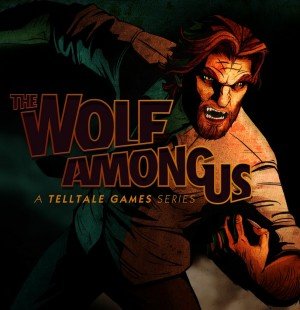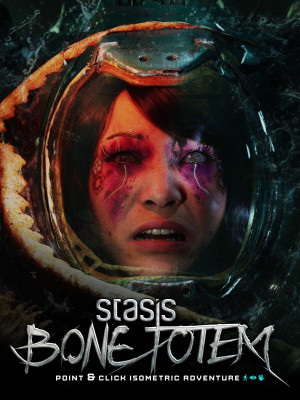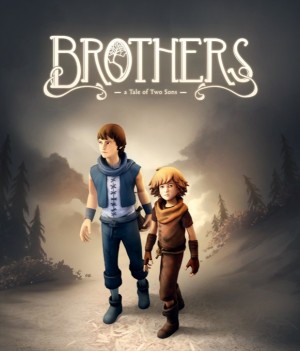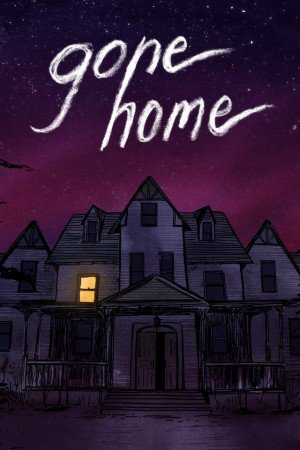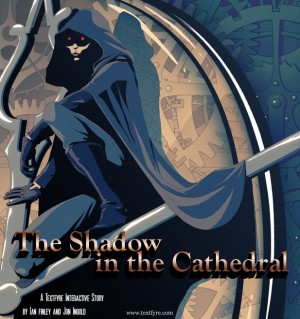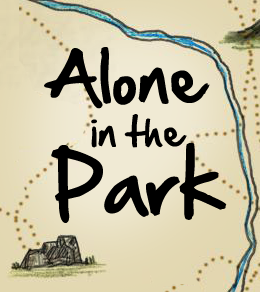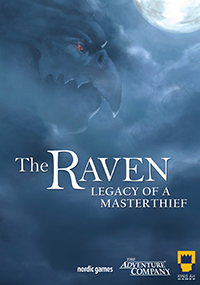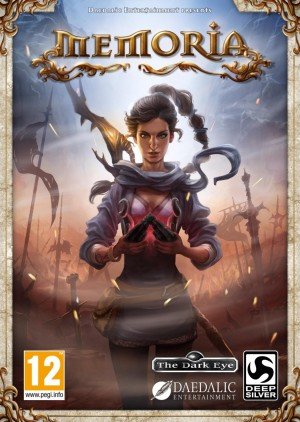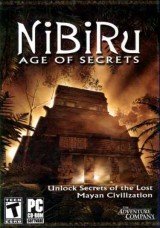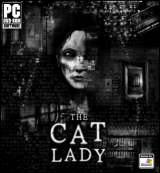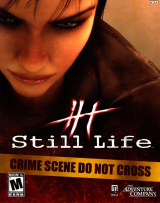Review for The Wolf Among Us: Episode One - Faith
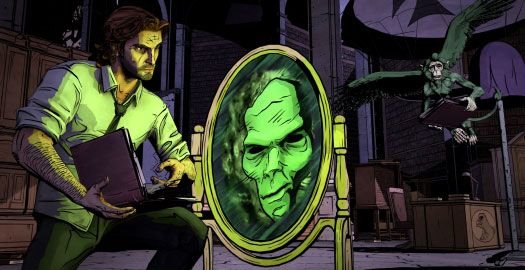
Let’s take a moment to sympathize with the folks at Telltale Games—after all, it must be hard to follow up a game such as The Walking Dead, an emotionally ravaging, near-perfect interactive narrative experience. Now that they are fully out of the traditional genre shadows and cast into the mainstream gaming spotlight, Telltale emerges with their next project, The Wolf Among Us, a five-episode adaptation of the comics series Fables. With a major tonal shift to an adult-themed fantasy fairy tale world and the crushing weight of expectations, it's only natural to be nervous about the results. But when you play the first episode, Faith, you'll find yourself nothing but delighted by what is easily one of the best debut installments the company has ever created.
If you’re not familiar with Bill Willingham’s Fables, a staple of DC Comics’ Vertigo imprint since 2002, the plot summary is this: All those characters from fairy tales of your childhood have been driven out of their homeland by the mysterious Adversary, and now secretly inhabit portions of New York City. A magic spell called Glamour disguises their fairy tale form and allows them to be perceived in society as humans. They live among the “mundane” normal folks, known as the Mundys. Old King Cole is the mayor of Fabletown, Snow White is the operations manager, and the Big Bad Wolf (your player character here, otherwise known as Bigby Wolf) is the sheriff. Their actions from the tales of yore play a role in how they interact; you’ll likely never look at the Little Red Riding Hood tale the same way again after hearing Wolf and the Woodsman’s spin on past events.
If you are familiar with Fables (I have read, and enjoyed, the first 40 or so issues; the series is still being actively published through issue 134 as of today), be confident that the source material is well adhered to. Although Willingham is not directly credited as a consultant on the game, I can only imagine he would approve (or did approve) of everything that takes place, particularly the exceptional dialogue that feels directly lifted from his vision of Bigby and Snow’s complex relationship, which is a centerpiece of the first episode. However, familiarity with the Fables universe is no precondition, as this entire game series takes place prior to issue #1 of the comic. Jump right in with no prior knowledge and you’ll be equally delighted.
Be quite clear, though, that this is not a fairy tale world for children—the comic series, true to its adult-focused Vertigo label, features overwhelming violence, copious profanity, sex and nudity, and a brilliant re-imagining of the heroes and villains that I tell my seven-year-old daughter about at bedtime. Telltale delivers the adult content with a vengeance: Faith is blisteringly profane, incredibly violent, and loaded with enough adult situations to fill a month of HBO Sunday programming. Yet the brilliance of The Wolf Among Us, in contrast to The Walking Dead, is that this dark content is delivered in a bizarre tongue-in-cheek fantasy setting, in a brightly-colored world of magic. It’s the effect of placing the bleakest noir layering over an episode of Mickey Mouse Clubhouse—and it is intoxicating to watch and listen to.
The story is simple, at least as fairy tale murder mysteries go. See, there hasn’t been a murder in Fabletown in years, but when Bigby Wolf discovers the gory remnant of such a killing on his front step, it’s time to start investigating with the help of his sometimes-partner, sometimes-adversary Snow White. Of course, there are political considerations with the current acting mayor trying to keep his citizens from rioting, and there are other characters (some original to the game) lurking in the shadows, interested in this murder for their own reasons. The killing sets up the five-episode story arc that rapidly takes a couple sharp turns—and even asks you, in a recorded moment of choice, who your primary suspect is near the end of the episode.
The brilliance of The Walking Dead was the awful stirring-up of human consequences within your soul—the visceral reality of being faced with choices that were just varying shades of bleak grey, and the subsequent evaluation that it caused every player to take: what would I do in this real human situation with no ideal choices? The Wolf Among Us is equally brilliant on an entirely different plane. There is no humanity to be concerned about; Bigby Wolf is a rough, grizzled, violent sheriff and you can make plenty of choices to establish what kind of character you want him to be. My Bigby is a fair, impartial sheriff with a heart of gold. Yours might be an excessively violent, vengeance-extracting rogue with only his own interests at heart.
These decisions are made by choosing to share certain facts you learn with your fellow Fables, or deciding which villain to pursue in a crucial moment of conflict, or even whether to perform a little extra violence when a fight is won. And just like the blueprint that The Walking Dead perfected, these choices legitimately matter (at least for now). Your path may be different than mine—you may have a different character alive (or dead) at chapter’s end; you may not have learned a crucial clue that I did; and the very last choice seems to send the story in two entirely different directions leading into the second episode. I have absolutely no complaints about the storytelling, especially the entirely unexpected cliffhanger, as good as any in Telltale’s history.
There is obviously no way around a series of comparisons with The Walking Dead, at least for this first episode, and Telltale has generally chosen not to "fix" an approach that was largely not broken. Bigby Wolf is controlled only with the WASD keys (or gamepad); the mouse is only used to highlight objects and select the actions. Conversations proceed with multiple choices, and there is always a countdown before silence becomes the forced response. Your dialogue selections have a meaningful impact on later events and conversations. I know this because of the existence of one of my least favorite elements, the omniscient periodic announcements that you just hit a trigger point with your latest choice. The evolving world dynamics would feel more genuine without the “Snow appreciated that” and “Toad will remember that” story notifications.
The interface could use a bit of polishing, though. It is annoying that you cannot click on an object while walking; you must stop your keyboard input before the mouse button will respond. Hotspots (“selectables”) are either always on or always off, and are brought on screen through a press of the T key—the mechanic of having them fade in and out based on walking proximity, which was much more immersive, has been removed. And while there is a “hold Shift to run” feature, running amounts to an extremely slight increase in walking speed and is generally useless as a function to speed up gameplay.
Of course, speeding up gameplay is of little concern. Faith is well-paced, moves quickly, does not loiter at any location, has literally no puzzles of any consequence as long as you look at everything you can, and powers through its playing time in just a shade over two hours. It is over too early (in a good way, I suppose) and, like any great choice-driven story, leaves you immediately wanting to play it again. And trust me, I wanted to, but I urge you to restrain yourself and preserve the choices you made through future episodes rather than diluting the narrative by following every path. However, should you choose to “rewind” to the beginning of any of the episode's six chapters, the game will helpfully copy your save file at the point you rewind to so that you do not disrupt your original choices. To do so, at least to me, feels like the equivalent of reading an entire Choose Your Own Adventure book cover to cover, but I can’t fault completists for wanting to see everything this game has to offer.
The best moments of Faith are the most exciting—a number of “battle sequences” that are high-adrenaline, involving a series of quick time events (emphasis on the quick). The opening brawl is exceptionally violent, with Wolf and his adversary throwing each other all over a small apartment building while trying to break or detach various limbs (the only thing that can sustain more punishment than a zombie is apparently a Fable). These battles (sometimes they are pure fights, sometimes pursuits) occur through quick directional keystrokes, plus the occasional single-button-mashing and a semi-precise mouse click thrown in here and there. They are longer and more varied than any such sequence in The Walking Dead and feel more essential to the narrative. Though the occasionally rough load times mean they’re not always seamless, they are in no way difficult and even if you miss quite a few prompts in a row, it is very hard to actually die. I had to go back and make a deliberate effort to do so just to assure myself it was actually possible.
So much of the focus will be, and should be, on the storytelling, but even a compelling story is made better with good graphics and sound, and in these areas Telltale excels as much as ever. The cel-shaded world of Fabletown, New York is brightly colored and heavily stylized in a comic book fashion. The animation is generally good—I love the way the character shadows look, even if they don’t actually have any relevance to where the light source is—but even if it's not technically impressive, the game is always enjoyable to look at with vibrant character models and the lively world they inhabit, where all the interiors of apartments, bars, and offices are full of details that make them really feel lived in.
A conversation-driven game must also have believable facial expressions, and as much for the primary human characters as for the alcoholic pig and the disagreeable toad, Telltale nails the match between visible expression and dialogue emotion. The voice acting is truly top-notch; some of the best to be found in modern gaming, with the script so well executed that I legitimately laughed out loud at the dark humor multiple times—something I almost never do while playing a game. It’s not always easy, for some reason, for game designers to execute concepts like character interruption, but the timing and delivery are flawless here. The always reliable Jared Emerson-Johnson again scores the episode with just the right understated mood music, never forcing the soundtrack into an unnecessary point of focus.
I can’t stress how much fun I found this game to be, how much I loved looking at it, exploring it, and living in this bizarrely imaginative world of Fabletown. It’s remarkable how well this strange comic book has translated over to the world of adventure gaming, and how successfully Telltale has applied their choice-driven story mechanics to this universe. While The Walking Dead was never "fun" in the traditional sense, but rather more emotionally exhausting and skillfully engaging, Faith is peculiarly compelling while being deviously humorous, simultaneously bright and gritty, and always deliriously entertaining.
Of course, history (and I, over the next few months) will judge The Wolf Among Us as an entire series and not an individual episode. But any concerns I had that this game would be underwhelming were blown away in 15 minutes by an adventure that is engaging, fun, perfectly true to its source material, and fantastically written and drawn. I hope the episodes get a bit longer, and I’d love to see some interface smoothing, but otherwise I have no significant criticisms of episode one, other than not wanting to wait two months to play the next one. This series won’t ravage your soul the way The Walking Dead did, but it shapes up to be an exceptionally enjoyable adventure in its own way, earning the right to be freed from further comparisons to its predecessor and stand on its own as an outstanding jewel in Telltale’s rapidly-growing crown.




